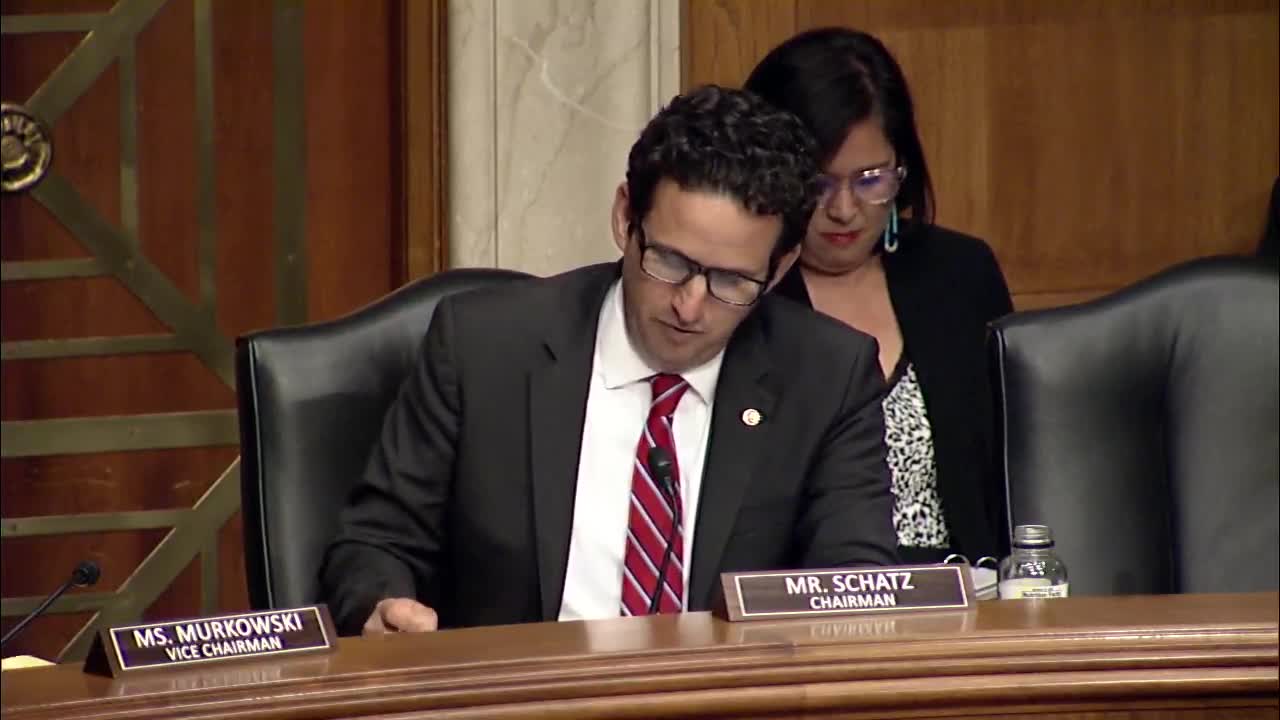Bill Aims to Combat Stray Dog Attacks in Native Communities
July 25, 2024 | Indian Affairs: Senate Committee, Standing Committees - House & Senate, Congressional Hearings Compilation

This article was created by AI summarizing key points discussed. AI makes mistakes, so for full details and context, please refer to the video of the full meeting. Please report any errors so we can fix them. Report an error »

In a recent government meeting, lawmakers discussed a significant bill aimed at enhancing public health in Native American communities through the provision of veterinary services. The proposed legislation seeks to amend the Indian Healthcare Improvement Act, allowing the Indian Health Service (IHS) to utilize public health service officers to combat endemic diseases that can spread between animals and humans, such as rabies.
The bill, identified as S. 4365, specifically targets the alarming overpopulation of stray dogs in rural Native communities, which has become a pressing public health and safety concern. According to statistics presented during the meeting, over 4,000 tribal members seek medical care annually due to dog attacks on reservations, with Native children being particularly vulnerable. Disturbing incidents were highlighted, including fatal attacks on children and elders, underscoring the urgent need for intervention.
The legislation proposes to implement spay and neuter services to control the stray dog population, a strategy deemed the most humane and effective solution. Support for the bill has been voiced by various organizations, including the Alaska Native Health Consortium and the American Veterinary Medical Association, as well as tribal leaders.
While the bill aims to improve veterinary services in Native villages, concerns were raised regarding new CDC regulations on dog imports, which could complicate access to veterinary care in remote areas. Lawmakers are advocating for a delay in these regulations to address the unique challenges faced by communities in Alaska and other border states.
Overall, the meeting highlighted a critical intersection of public health and animal welfare, with the proposed legislation poised to make a meaningful impact on the safety and health of Native American populations.
The bill, identified as S. 4365, specifically targets the alarming overpopulation of stray dogs in rural Native communities, which has become a pressing public health and safety concern. According to statistics presented during the meeting, over 4,000 tribal members seek medical care annually due to dog attacks on reservations, with Native children being particularly vulnerable. Disturbing incidents were highlighted, including fatal attacks on children and elders, underscoring the urgent need for intervention.
The legislation proposes to implement spay and neuter services to control the stray dog population, a strategy deemed the most humane and effective solution. Support for the bill has been voiced by various organizations, including the Alaska Native Health Consortium and the American Veterinary Medical Association, as well as tribal leaders.
While the bill aims to improve veterinary services in Native villages, concerns were raised regarding new CDC regulations on dog imports, which could complicate access to veterinary care in remote areas. Lawmakers are advocating for a delay in these regulations to address the unique challenges faced by communities in Alaska and other border states.
Overall, the meeting highlighted a critical intersection of public health and animal welfare, with the proposed legislation poised to make a meaningful impact on the safety and health of Native American populations.
View full meeting
This article is based on a recent meeting—watch the full video and explore the complete transcript for deeper insights into the discussion.
View full meeting